Search Images
Browse Content (p. 1161)
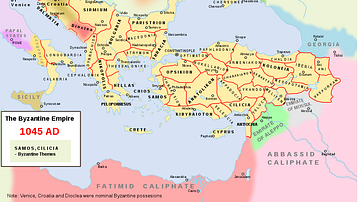
Image
The Byzantine Empire c. 1045 CE
Map depicting the Byzantine Empire in 1045 CE showing its administrative divisions and its neighbours.

Image
Byzantine Histamenon of Isaac I
Gold histamenon coin of Byzantine emperor Isaac I Komnenos (r. 1057-1059 CE), who is pictured on the reverse (on the right), crowned and in military dress, while the obverse shows Christ enthroned. (Classical Numismatic Group, Inc. http://www.cngcoins.com...
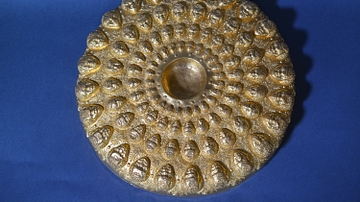
Image
Gold Phiale from the Panagyurishte Treasure
Gold phiale (shallow bowl) from the Panagyurishte treasure, early 3rd century BCE. National Historical Museum - Sofia/Plovdiv Archaeological Museum Photography: Oleg Konstantinov, Plovdiv Regional Historical Museum, Bulgaria (used with...

Image
Collection of Ptolemaic Jewellery
This opulent collection of Ptolemaic jewellery from Egypt probably belonged to a wealthy woman and was made between 225–175 BCE. The various pieces were made out of gold and are inlaid with a variety of precious stones. The collection...
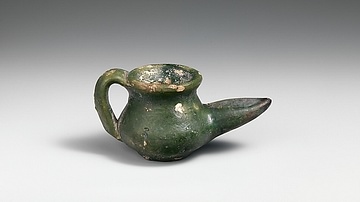
Image
Crusader Lamp
Dating to the mid-13th century CE, this lamp was found near Acre, in present-day Israel. It measures 5.4 cm x 11 cm x 6 cm. (Metropolitan Museum, New York)
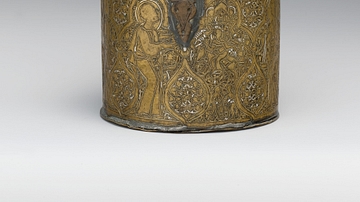
Image
Brass Pyxis Depicting Jesus' Return to Jerusalem
Dating to the late 13th century CE, this brass pyxis depicts Jesus' return to Jerusalem, juxtaposed with standing figures (possibly saints). It is engraved, and decorated with silver. Measures 10.5 cm height and 10.3 cm in diameter. Weighs...
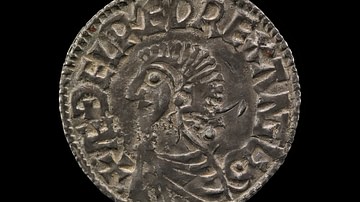
Image
Coin of Aethelred II
Silver coin depicting the English king Aethelred II The Unready (r. 978-1016).
The British Museum, London.

Image
Erminia and the Shepherd Tapestry
Designed c. 1689-1693 CE by Domenico Paradisi on commission by Cardinal Ottoboni, this tapestry depicts Erminia and the Shepherd. It is one of a series of tapestries from Gerusalemme Liberata (Jerusalem Delivered) portraying a romanticised...

Image
Hanging Gardens of Babylon
A representation of the Hanging Gardens of Babylon, the fabled gardens which possibly adorned the capital of the Neo-Babylonian Empire, built by its greatest king Nebuchadnezzar II (r. 605-562 BCE). By Ferdinand Knab, 1886 CE.

Image
Assyrian Gardens
A detail of a gypsum wall panel relief showing Assyrian gardens with architectural features. From the North Palace of Ashurbanipal (668–631 BCE) at Nineveh. (British Museum, London)